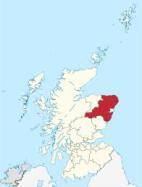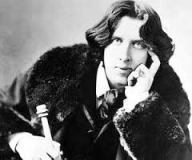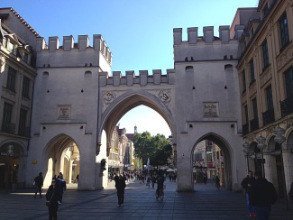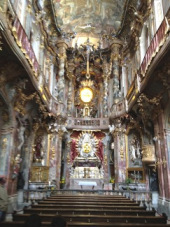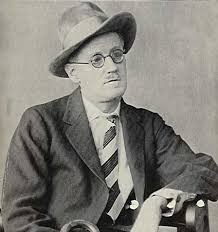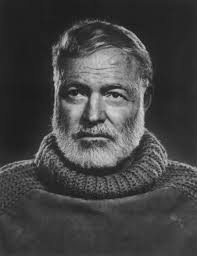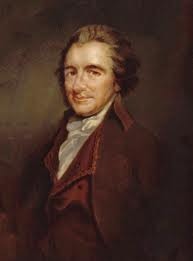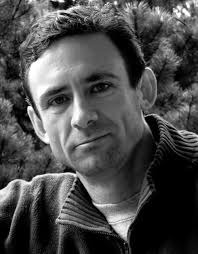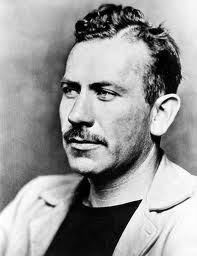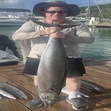Guy Portman's Blog, page 46
October 25, 2013
Aberdeenshire
Last week I took a break from working on my second novel to visit Aberdeenshire on the east coast of Scotland (see map below).
(Courtesy of wikipedia.org)
On exiting Aberdeen airport I came across these remarkable spider web patterns on a hedge by the car hire depot.
Commercial forestry is very important to Aberdeenshire’s local economy. Picea sitchensis or Sitka spruce, a coniferous evergreen tree originating from the west coast of North America has become the predominant species in recent year...
October 18, 2013
Famous Authors Who Died Poor II
The following post is dedicated to two world famous and iconic authors, who died poverty stricken.
Oscar Wilde
(October 16th 1854 – November 30th 1900)
Notable works: The Importance of Being Earnest, The Picture of Dorian Gray.
The flamboyant Oscar Wilde was a writer, poet and playwright, acclaimed for his enduring wit and writing abilities. At the height of his fame in the early 1890s’ Wilde was a successful playwright and a mainstay of the London social scene.
However his world was to come crash...
October 11, 2013
Oktoberfest
Last week I went to Munich for the annual beer festival, Oktoberfest. This is what I did there:
My first sight of Munich on disembarking the train from the airport was the famous Karlsplatz (see above). The sightseeing continued with a visit to Marienplatz where I was greeted by its iconic spire.
After which I visited this church (see below), located close to Marienplatz, its name escapes me.
It was now late morning and I was feeling pretty thirsty so I had my first stein (1...
October 4, 2013
Alcoholic Authors III
As my Alcoholic Authors series has proven to be fairly popular here is a further instalment.
Dorothy Parker
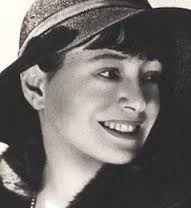 (August 22nd 1893 – June 7th 1967)
(August 22nd 1893 – June 7th 1967)
Notable works: Enough Rope, Sunset Gun, A Star is Born.
American writer and poet Dorothy Parker was renowned for her sardonic wit and writing abilities. Parker sold her first poem to Vanity Fair in 1914 and went on to have an incredibly successful career, which saw her publish books, short-stories, screenplays and poetry. Her achievements include being a s...
September 27, 2013
Alcoholic Authors II
Following on from last week, this is part two of my Alcoholic Authors series.
James Joyce
(February 2nd 1882 – January 13th 1941)
Notable works: Ulysses, Finnegans Wake, A, Portrait of the Artist as a Young Man.
Irish novelist and poet James Augustine Aloysius Joyce is regarded as one of the most influential writers of the modernist avante-garde of the early Twentieth-century. In 1999 Time Magazine named Joyce amongst the hundred most important people of the last century. In 1998 Modern Library r...
September 20, 2013
Alcoholic Authors I
Many writers have had a dependence on alcohol. There has been much speculation as to the reasons why many writers drink so heavily. Perhaps in some instances it is due to the author’s solitary working habits or their pensive melancholy nature, in others maybe it is to obliterate bad memories or to increase confidence. This blog post is dedicated to two heavy drinking famous authors.
Ernest Hemingway
(July 21st 1899 – July 2nd 1961)
Notable works: The Sun Also Rises, For Whom the Bell Tolls, The...
September 13, 2013
Posthumously Famous Authors IV
This is the final instalment of the Posthumously Famous Authors series.
Henry David Thoreau
(July 12th 1817 – May 6th 1862)
Notable works: Civil Disobedience, Walden, The Works of Henry David Thoreau, Cape Cod.
An author, poet, philosopher, abolitionist, environmentalist and transcendentalist, the multi-dimensional Henry David Thoreau’s prodigious writing output consists of nearly twenty volumes of writing. Thoreau was well known as a transcendentalist, naturalist and ardent abolitionist during hi...
September 6, 2013
Social Media Reflections
Prior to the publication last year of my novel, Charles Middleworth, an insightful and humorous tale of the unexpected, my social media presence consisted of merely a Facebook profile with a couple of pictures (not of cats). Shortly before the book’s release I made a foray into Twitter and have since embraced a range of social media platforms. In this post I reflect on my social media observations to date:
Twitter – A little over seven years ago a Tweet was the sound emitted by a variety of sm...
August 30, 2013
Controversial Authors (Part 5)
This is the final instalment of the Controversial Authors series. Initially I planned for the series to have only three parts, but there are so many authors that have been regarded as controversial through the course of history that I added an additional two.
Thomas Paine
(January 29th 1737 – June 8th 1809)
Notable works: Common Sense, The Rights of Man, The Age of Reason
Thomas Paine was a political activist, author, political theorist, revolutionary and one of America’s Founding Fathers. He arrived in America from England in 1774, just in time to participate in The American Revolution. Paine’s pamphlet, Common Sense (1776), sold an estimated half-a-million copies during the course of the revolution and is regarded as one of the most influential works of the eighteenth-century.
However when Thomas Paine died in 1809, his funeral was only attended by six people and his obituaries were universally scathing. Abraham Lincoln’s friends even burned a booklet he had written and over a hundred years after Paine’s demise, Theodore Roosevelt referred to him as a ‘filthy little atheist.’ If Paine had been martyred in The American Revolution there seems little doubt that his face would be gracing bills today. It was the controversy of his later writing, particularly The Age of Reason (1794) that were to seal his remarkable fall from grace.
In The Age of Reason Paine defended freedom against what he regarded as religious dogmatism, in the same manner that he had defended freedom against political tyranny during The American Revolution. The book was essentially a critique of The Bible, in which the author aired his own personal views on organised religion. These views were extremely controversial at the time of its publication and were to remain so over the forthcoming years. Though the author stated his strong personal belief in spirituality in the book, he was accused of being an atheist, something that was to cost what many view as his rightful place of honour amongst the The Founding Fathers.
Chuck Palahniuk
(Born: February 21st 1962)
Notable works: Fight Club, Haunted, Choke
Born in Pasco, Washington state, the American novelist and freelance journalist of Ukrainian descent, has constantly courted controversy with the content of his books; no mean feat in today’s era of tolerance. Palahniuk’s first novel, Invisible Monsters, a fictional story about a model who is shot in the face, was rejected by publishers for its disturbing content. His next effort, Fight Club, which remains to this day his most celebrated, saw the author attempt to be yet more controversial and scandalous than in his first effort. To Palahniuk’s surprise the book was published. It went on to become an international success, in no small part due to it being adapted for the big screen.
The film was extremely controversial at the time of its release in 1999, only six months after the Columbine school shootings. There had been much publicity over the perceived role of violent media in relation to the incident and Fight Club was viewed by many as glamourising violence. Real fight clubs soon began appearing throughout the United States and beyond, only adding to the furore.
Palahniuk’s dark and disturbing Fiction has continued to scandalise ever since. The short story, Guts, about masturbation accidents, contained in his book, Haunted, was met with such shock that people even passed out at public readings, only adding to the author’s notoriety. Haunted is often voted in polls as one of the most disturbing books ever written and has been banned along with the author’s other works in many schools. In Turkey, the translator of Palahniuk’s book, Snuff, was detained and interrogated by the police over what the authorities regarded as the book’s offensive content.
There seems little doubt that the author’s graphic depictions of violence and sex will cause more controversy, especially with further adaptations of Palahniuk’s books due for the silver screen in the near future.
Click on the links to read my reviews of Fight Club, Haunted and Damned and Adam’s (resident book reviewer’s) review of Survivor.
Click here to read Part 4 of Controversial Authors.


August 23, 2013
Controversial Authors (Part 4)
I initially said that Part 3 of the Controversial Authors Series would likely be the final instalment, but I have since changed my mind. It seems fairly likely that there will also be a Part 5, possibly next week.
John Steinbeck
(February 27th 1902 – December 20th 1968)
Notable works: Of Mice and Men, The Grapes of Wrath, East of Eden
Born in Salinas, California, John Steinbeck went on to become a prolific novelist and short-story writer, and one of the most acclaimed literary figures America has ever produced. Steinbeck’s accolades include The Pulitzer Prize for Fiction (1940) and the Nobel Prize in Literature (1962).
Steinbeck was and still is, though to a lesser extent, regarded as a very controversial author. Arguably his greatest work, The Grapes of Wrath, has been banned by many school-boards down the years. The book was even burned on two separate occasions in the author’s home town of Salinas. According to The American Library Association, Steinbeck was one of the ten most frequently banned authors from 1990 to 2004.
The author’s left-wing leanings are a reoccurring theme in much of his writing. Steinbeck was very critical of capitalism and a supporter of unionisation, as witnessed in In Dubious Battle and The Grapes of Wrath. Unionisation was highly controversial at the time of their publication, as it was viewed by many Americans as being inherently communist, a label incidentally often levelled at Steinbeck himself.
Steinbeck’s most famous book, The Grapes of Wrath, is about a poor family of Oklahoma sharecroppers, the Joads, driven from their land during the 1930s’ Dust Bowl and The Great Depression. In The Grapes of Wrath, Steinbeck advocates for the under-privileged, concentrating on social injustice, poverty and criticism of the nation’s economic plight, something that was fiercely debated at the time of its publication and beyond.
Click on the links to read my reviews of In Dubious Battle, The Wayward Bus and Sweet Thursday.
George Orwell
(June 25th 1903 – January 21st 1950)
Notable works: Animal Farm, Nineteen Eighty-Four
Born Eric Arthur Blair in British occupied India, author and journalist George Orwell was interested in social injustice, opposed to totalitarianism and committed to democratic socialism; ideals that resulted in the author often courting controversy, something which appears to have appealed to the opinionated writer. So strongly was Orwell opposed to Fascism that he even volunteered to fight in The Spanish Civil War against the Fascists. His experiences there gave rise to his book, Homage to Catalonia (1938).
Orwell’s most famous work, Nineteen Eighty-Four, a book that warned of totalitarian censorship, has been viewed as controversial since its publication due to its themes of nationalism, censorship and sexual repression. The book was banned in Russia shortly after the translated version came out there, as it was deemed to be a thinly disguised attack on Stalin’s Soviet Union. Ironically however in 1981, parents in Jackson County, Florida, challenged that the book was ‘pro-communist’ and contained ‘explicit sexual content.’
Animal Farm, a blend of animal fable and political satire was finished in 1944, but so controversial was the subject matter that it was not published until more than a year later, so concerned were the British government that the content would offend the country’s communist allies. The book is widely viewed as being an attack on Stalin and his totalitarian rule. Not surprisingly Animal Farm was banned in Soviet countries due to its perceived political content. The book was often used for propaganda purposes by anti-communist factions in the U.S., something that concerned the author greatly.
It was not only his two most famous works that were viewed as being controversial. Orwell’s portrayal of the life of English industrial workers, particularly coal-miners, in his book, The Road to Wigan Pier, was regarded as such at the time of its publication in the U.K.
Click on the links to read my reviews of The Road to Wigan Pier and Down and Out in Paris and London.
Click here to read Part 3.



